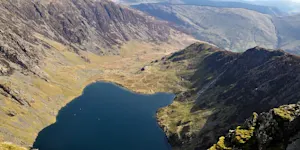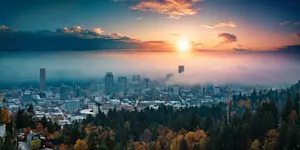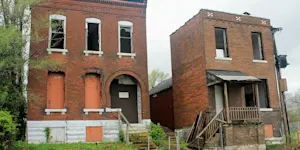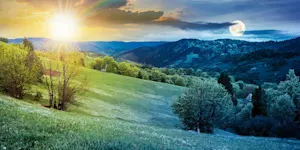What Makes This Word Tick
The word "diluvial" is deeply tied to the grandiloquence of floods. It's an adjective used to describe something that relates to or is caused by a flood, often of biblical proportions. It's as though it carries with it the weight of ancient waters and the stories of civilizations that rose and fell by the ebb and flow of mighty rivers.
If Diluvial Were a Person…
If "diluvial" were a person, they'd probably be the type to host dinner parties that are delightfully over-the-top. Imagine someone with a flair for the dramatic, wearing a cape and gesturing wildly about their recent adventures. The kind of person who’d regale you with stories that rise and swell in excitement, leaving you a little breathless by the end.
How This Word Has Changed Over Time
"Diluvial" hasn’t drifted much from its origins. Initially linked to the biblical deluge, it once conjured images of Noah’s Ark and the Great Flood. Over time, while it retains its watery roots, its use has broadened to describe any grand, sweeping flood-like event, whether literal or metaphorical.
Old Sayings and Proverbs That Use Diluvial
While "diluvial" isn't the star of many time-worn phrases, its cousin "deluge" pops up in sayings like, "after a deluge comes a rainbow," reflecting the inevitable sunshine following life's tempests.
Surprising Facts About Diluvial
A fascinating tidbit about "diluvial" is its role in geology, describing periods shaped by intense flooding. In 19th-century science, "diluvian" theories suggested that floods modeled much of Earth's surface, showcasing the strong tie between language and our understanding of the world.
Out and About With This Word
In modern usage, you might encounter "diluvial" in environmental conversations, as climate change experts discuss the impact of increasing extreme weather events. It’s also found in literature, often adding dramatic flair to settings overwhelmed by nature’s fury.
Pop Culture Moments Where Diluvial Was Used
Though "diluvial" doesn't have breakout Hollywood moments, it lends itself perfectly to apocalyptic movie scripts. One can imagine it echoing around in the narrative voiceover of a disaster film's opening sequence, setting an ominous tone.
The Word in Literature
In literature, "diluvial" graces the pages of epic tales and historical novels, adding gravitas to stories of floods and the passage of time. Its presence is like that of a supporting character — pivotal without overshadowing the main plot.
Moments in History with Diluvial
Picture the Ice Age meltdowns: torrents of water reshaping lands, sweeping across continents. While "diluvial" didn’t make the headlines (since they didn't have newspapers then!), it’s the perfect word to describe the overwhelming forces in play during those formative epochs.
This Word Around the World
Across languages, "diluvial" finds its siblings in terms like "diluvio" in Spanish and "déluge" in French. These words all share roots in describing overwhelming floods, be they literal or figurative, seen as universal symbols of cataclysmic change.
Where Does It Come From?
Tracing "diluvial" back, we find Latin – the word "diluvialis," meaning related to a flood. This, in turn, comes from "diluvium," meaning a flood or deluge, marrying the concepts of earth, water, and time.
How People Misuse This Word
Sometimes "diluvial" gets confused with "deluge" in everyday conversation. While they’re siblings in meaning, "diluvial" specifically describes things related to floods, not the flood itself.
Words It’s Often Confused With
Deluge: Used to mean a flood; "diluvial" is an adjective relating to floods.
Aquatic: Pertains to water, rather than specifically to flooding.
Cataclysmic: While both imply large-scale disasters, "diluvial" is strictly flood-related.
Additional Synonyms and Antonyms
Synonyms for "diluvial" include flood-caused, inundated, and submergent. As for antonyms, consider arid, dry, and barren, each conjuring images of landscapes untouched by floodwaters.
Want to Try It Out in a Sentence?
"After days of relentless rain, the diluvial aftermath reshaped the valley, leaving its mark on the landscape and in the villagers' folklore."
















